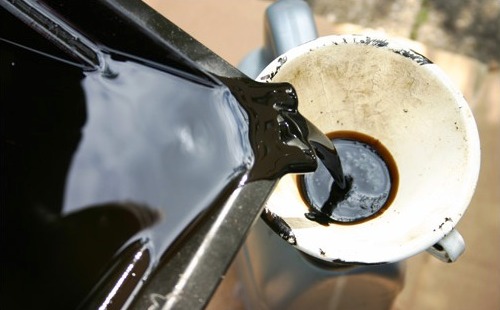There is a “cheap oil” endemic, and I am concerned for the consumer.
As suppliers of various lubricants, one of our tasks is to demonstrate to automatic transmission and gearbox rebuild specialists the benefits of using OE (original equipment) oils or at least lubricants that meet the required manufacturer’s specifications. This is much more difficult than you might think.
I am concerned about the percentage of repair shops that choose to use low-quality, or in many cases, the cheapest oils available. A customer can easily spend £1500, £3000, or even £5000+ on more complex automatic gearbox overhauls, and yet, the garage performing the work will use oil that costs them around £1.50 to £2.00 per liter. And their response when they are asked why they choose such cheap oil? Their answer is generally this: “As long as it lasts the twelve-month warranty period, it is fine.”
This raises an interesting concern, not just in the transmission rebuilding market but also with engine oil changes. I believe that as a consumer, you are perfectly within your rights to question and challenge the oil being installed in your vehicle, whether it’s the transmission fluid, engine oil, or any other fluid.
In virtually all cases, franchised dealers will use OE oils. That’s what your money is paying for and how they justify their excessive prices. While not always the best value or the highest quality, at least you receive an accepted and approved level of quality.
Our greatest concern is with some independent garages and repair centers. Too many garages still insist on “cheapest” and, in some cases oils that simply do not meet the specifications for your vehicle. For example, they use mid or high SAPS (sulfated ash, phosphorus, sulfur, etc.) oil with engines that are only designed to run on low SAPS oils. This is concerning because of the potential harm to the emission control components, such as the DPFs (Diesel Particulate Filter) and so on. There have even been instances of an oil distributor selling recycled oil to their dealers, only for the dealers to discover that the engines were starting to burn and consume more oil! The base stock and additive pack were not good enough, and the oil deteriorated very quickly to the degree that the oil bypassed the piston rings and the engines began to consume it.
If you are paying for a service, repair work, or a complete overhaul of the transmission or engine in your vehicle, you are quite in your right to enquire about the fluids being used and request high-quality ones. When paying substantial money for a repair, it makes sense to use OE quality as an absolute minimum. If your vehicle is modified and the engine produces more horsepower, then it is advisable to use oils that exceed the manufacturer’s specifications or at least change them more regularly.



 categories
categories